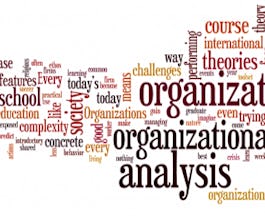Filter by
The language used throughout the course, in both instruction and assessments.
349 results for "compliance"
 Status: Free
Status: FreeStanford University
Skills you'll gain: Leadership and Management, Organizational Development, Strategy, Strategy and Operations, Decision Making, Business Psychology, Change Management, Culture, Business Analysis, Business Process Management
 Status: Free
Status: FreeYale University
Skills you'll gain: Contract Management, Leadership and Management

Skills you'll gain: BlockChain, Cryptography

EIT Digital
Skills you'll gain: Leadership and Management, Strategy and Operations

Skills you'll gain: Business Analysis, Problem Solving

Tally Education and Distribution Services Private Limited
Skills you'll gain: Accounting Software, Accounting, Finance, Taxes, Billing & Invoicing, Data Management, Financial Management, Payments, Financial Accounting
 Status: Free
Status: FreeCoursera Instructor Network
 Status: Free
Status: FreeUniversity of Manchester
Skills you'll gain: Leadership and Management

Skills you'll gain: Network Security
 Status: Free
Status: FreeCoursera Instructor Network

Microsoft

Vanderbilt University
Skills you'll gain: Creativity, Problem Solving, Writing
In summary, here are 10 of our most popular compliance courses
- Organizational Analysis : Stanford University
- American Contract Law II: Yale University
- Blockchain Security - Intermediate Practices : LearnQuest
- Privacy and Standardisation: EIT Digital
- Certification of Capability in Business Analysis: Starweaver
- Basics of Statutory Compliance and Taxation: Tally Education and Distribution Services Private Limited
- Success with Integrity: Business Ethics Foundation: Coursera Instructor Network
- Managing Responsibly: Practicing Sustainability, Responsibility and Ethics: University of Manchester
- AWS: Network Security, Compliance and Governance: Whizlabs
- Psychological Safety: Coursera Instructor Network










